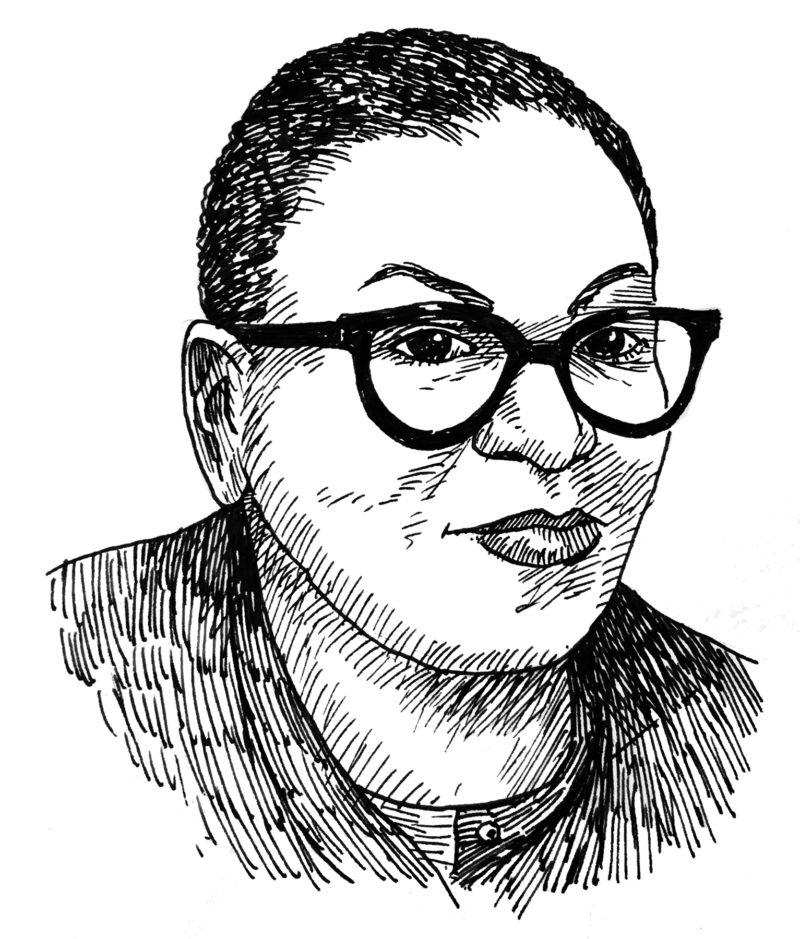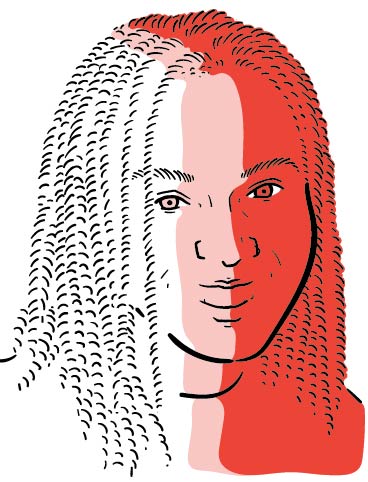In the author photo that accompanies Samantha Irby’s new collection of essays, Wow, No Thank You. (which came out March 31, 2020), she’s wearing a black sweatshirt with the words hysterical female printed in bold white type. That phrase is just the kind of joke she’d make about herself or would use to title one of her books. Irby is a hilarious person. When she’s not writing daily recaps of Judge Mathis for her newsletter subscribers, she’s crafting acerbic, referential essays about the complexities of modern life in the jargon of the internet and what she calls her “Midwest drawl.” As such, Irby’s prose does a grapevine dance between the two generations that the author, now age forty, belongs to. She was born in Evanston, Illinois, in 1980, and her writing is lithe like the old-head Chicago stepping she hopes to do as a borderline Gen Xer, and is rife with the terminology of the millennial internet. Reading her books is akin to unearthing a time capsule of Web 2.0 buried under the site of an aborted Meetup: her essays have the off-the-cuff realness of a LiveJournal, the quipiness of Twitter, and the inside allusions of cast-aside online communities like BlackPlanet.
Aptly enough, Irby, a self-proclaimed “internet joke person,” began her writing career online. She started blogging on Myspace to impress a guy she liked, and then eventually transitioned to her own blog, Bitches Gotta Eat, in 2009. Her three full-length books, all essay collections, have titles with the affect of a linguistic GIF, encompassing the angst, anxiety, hilarity, and pathos of this moment in vivid, imagistic phrases. Her first book, Meaty, published in 2013, is so named because she’d been referring to herself as a “meaty pre-corpse”; the collection gets at the corporeal joy and nastiness that come with having a body and living in the twenty-first century. Her second collection, 2017’s We Are Never Meeting in Real Life., digs into the distance of online engagement and the expectations of Irby’s newfound literary celebrity. In Irby’s work, one is just as likely to find hilarious considerations of her bad dating experiences and wry impressions of living with chronic illness and perimenopause as poignant recollections of her late father, who, as Irby writes, “would soak a loaf of bread with shoe polish and drink whatever he could filter through the loaf into a glass.” Wow, No Thank You., which she dedicates to Wellbutrin, an antidepressant, immediately connotes someone who’s over it, which is kind of ironic, because in the last couple of years, Irby’s writing has broken through.
Irby is now ubiquitous on the internet...
You have reached your article limit
Sign up for a digital subscription and continue reading all new issues, plus our entire archives, for just $1.50/month.
Already a subscriber? Sign in






